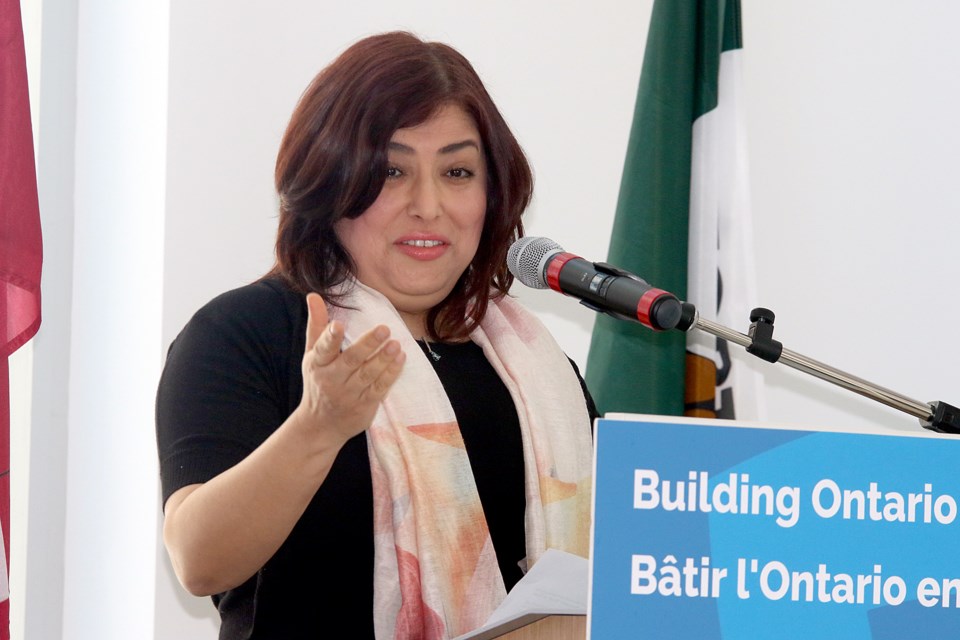THUNDER BAY – Maryam Ebrahimi says money provided by the province will go a long way to helping her and her research team dig deeper into the study of low dimensional nanomaterials.
On Thursday, the Tier 2 Canada Research Chair and assistant professor at Lakehead University, learned she’d been awarded $125,000 through the Ontario Research Fund – Small Infrastructure to buy a specialized microscope.
“This microscope will allow me and my research team to study the interaction and reaction of molecules at the sub-molecular or nano scale, which would be even smaller than one-billionth of a meter in dimension,” Ebrahimi said.
“By setting the action under a controlled condition and chasing the molecules, we will be able to design and make nano-architecture of molecules.”
While there is no practical use for the technology as it stands, with further research it could help a variety of industries by helping to strengthen materials or withstand the elements, for example.
“There is no immediate action, per se. We are looking at tomorrow it going to industry. Materials at nano-levels have shown fantastic or unexpected or unprecedented properties,” Ebrahimi said.
“We would be able to design materials for a specific application, but that will come later.”
Kenora-Rainy River MP Greg Rickford, who made the announcement on behalf of Minister of Economic Development, Job Creation and Trade, said it’s a wise investment on behalf of the Ontario government.
In addition to benefiting industry down the road, the money helps support students and researches at the local level, bringing students to the city to study science, along with world-class researchers like Ebrahimi.
“We’re very excited about this and very excited about the notion we can develop, partner and innovate with Lakehead right here in Northwestern Ontario,” Rickford said, noting students researching in the field nearly all find jobs when they graduate.
The possibilities are nearly endless, he said.
“It starts with the nano-molecular science that Maryam and her team are going to be leading here. The short answer is we’ll see. But we have confidence in the calibre of this researcher, the program here at Lakehead and the strength of the infrastructure we’re bringing here to do the science that it will have real proven results in the not-too-distant future for a myriad of applications.”
The province also provided $15,707 to cover the costs of a driving simulator for the university.
